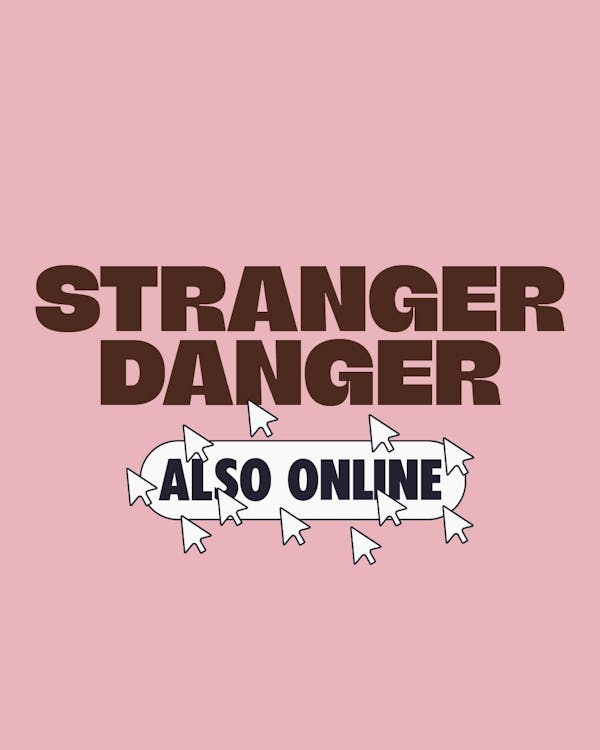‘Take care of yourself,’ ‘Be careful,’ or ‘Don’t just do what others tell you’. Every child has heard these words, and you, as a parent or caretaker, probably use them daily. But too often, these warnings only apply to the offline world. Which is strange, considering that with an ever-expanding online world, children come into contact with serious online risks.
It’s time for parents to extend their guidance to where their children are: also online!

The problem
Online Child Sexual Exploitation and abuse (OCSE) worldwide
The online risks for children are serious… According to Childlight (2024), over 300 million children have been victims of online sexual exploitation and abuse in the past year.
This indicates that one in eight of the world’s children have been victims of non-consensual taking, sharing and exposure to sexual images and video in the past year.
In addition, 300 million children globally are estimated to have been subject in the past year to unwanted sexual talk such as non-consensual sexting, unwanted sexual questions and unwanted sexual act requests by adults or other youths.
Parents’ concerns about the online safety of their children
We asked parents from Kenya, Cambodia and the Philippines about their views on online safety of their children. Their quotes below reflect concerns around digital literacy gaps, lack of control, cultural and language barriers, and fears of exploitation – major aspects of online safety challenges for children.
-
Father, Nairobi, Kenya
At my home, my children talk of TikTok, Snapchat and other social media chatting sites. I have no information what they do or see in those chats. I am unable to control or restrict them as I don’t know if those sites are bad.
-
Father and journalist, Nepal
Children are already living in the online world—parents need to catch up. We must give enough time to our children, monitor what they watch, and be present—not just physically, but digitally too.
-
Female caregiver, Kilifi, Kenya
My worry is that my child can take nude pictures and send them. They can be asked to share photos or remove their tops or bras, or panties to attract them. Internet never forgets.
-
Father of victim of OCSE, Cambodia
I could not control myself when I learned about what happened to my daughter. We value our family reputation since our ancestors, and we never wanted to bring shame to them.
-
Teacher, Philippines
It’s challenging for parents to control cell phone use, especially when children assert privacy. Even young children can show resistance to parental monitoring.
-
Caregiver, Philippines
Most of the time, I prefer to talk to them calmly. It’s better to have a good conversation rather than scolding them, as that can make them more upset.
Research
Country-wise summaries
Terre des Hommes Netherlands conducted a multi-country study on Online Child Sexual Exploitation (OCSE) across Cambodia, Kenya, Nepal, and the Philippines to understand parents’ roles in prevention and response.
The research revealed that most parents have limited knowledge of OCSE and struggle to keep up with the digital landscape, creating an intergenerational gap and new sources of conflict.
Children, particularly girls, reported experiencing harassment on platforms like Snapchat and Messenger but often fear victim-blaming, while boys tend to underestimate the risks of exploitation.
The study found that gender-diverse and neuro-diverse children face heightened vulnerabilities in online spaces. Based on these findings, we emphasize that supportive, informed parenting is vital in building digitally resilient children and calls for increased investment in scaling up parent support programs.
Read our studies here:
Cambodia
Kenya
Nepal
Philipp
Consolidated

Parents can not solve this problem alone!
We realise that parents can’t solve the problem of online safety alone. Terre des Hommes stresses the role and responsibility of other key players as well:
- It is crucial that tech companies acknowledge how their platforms are being used to harm children and take proactive steps to prevent, detect, and remove such content.
- Also governments must hold these companies accountable. Governments must strengthen online protections, ensure children can thrive without fear, and close the loopholes that allow perpetrators to exploit digital platforms.
Therefore, Terre des Hommes Netherlands calls on governments to take action to regulate technology companies to prevent, detect and remove online child sexual abuse on their platforms. Recently we handed over lobby letters to the Dutch Minister of Justice and Security by Terre des Hommes Netherlands’ CEO Jullie verhaar.
